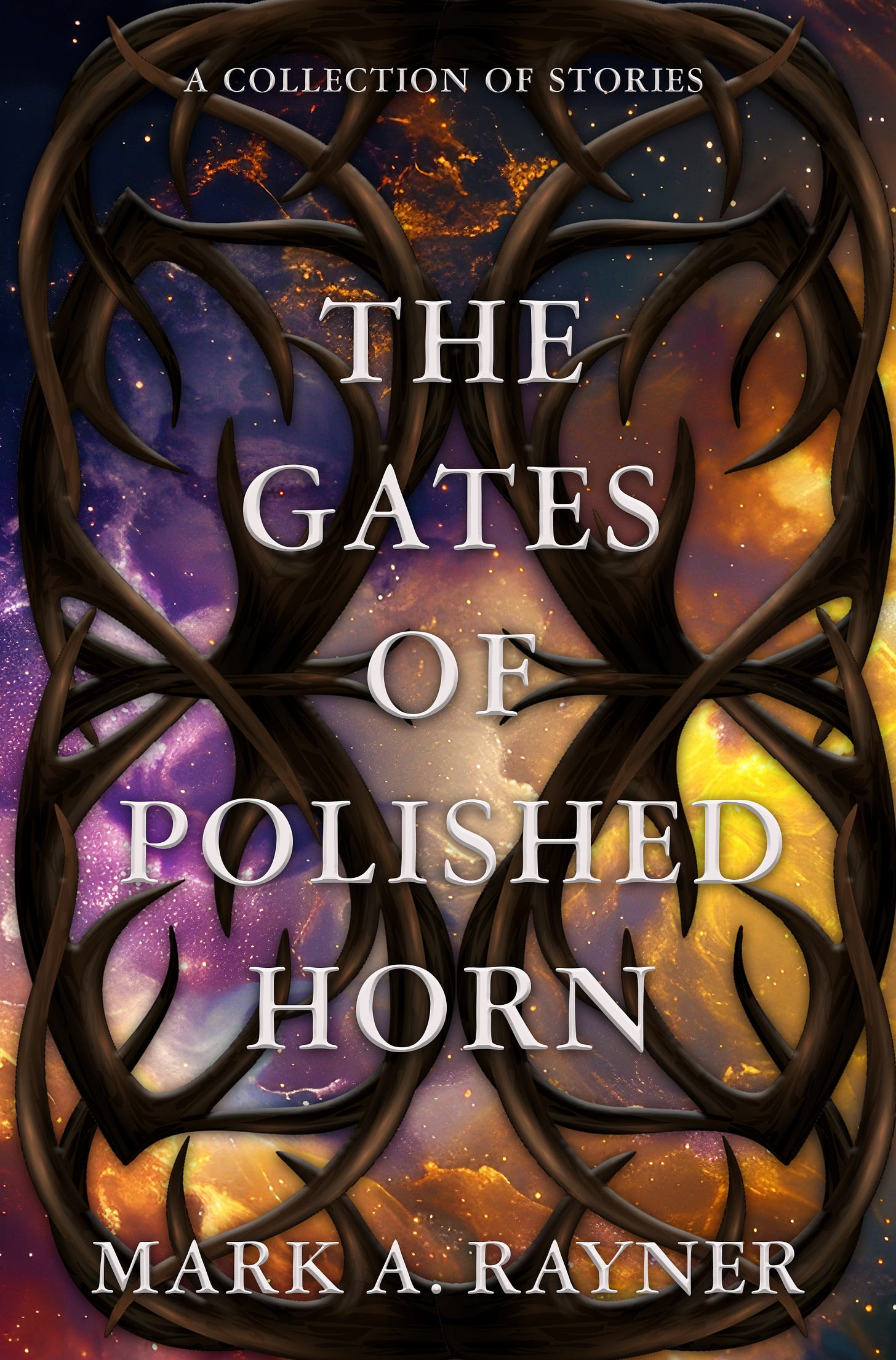Being the 48th edition of Assorted Nonsense, the official newsletter of Donovan Street Press Inc.
Publicly Funded Social Media (“Canada Book”)
Here’s a crazy idea. Kinda like how the Canadian Broadcasting Corporation was, once upon a time, a crazy idea. Until it wasn’t.
Like many of us, I deleted my Twitter account quite a while back. It was a shame. I’d really enjoyed Twitter, until Musk bought it, co-opted it, destroyed it. Now, to my dismay, I see that Zuckerberg is fiddling with Facebook, ditching thorough fact-checking; in short, making it increasingly vulnerable to the far-right. Many of my friends have already ditched FB and I can envision a time in the not-so-distant future when I might feel compelled to get off Facebook too. This would be a shame; I have valued its (rapidly decreasing) ability to keep me in touch with far flung family and friends.
Watching all this go down reminded me of an idea I had a few years back. An idea that I floated at the Canadian Broadcasting Corporation and that they have yet to implement (go figure).
As a manager at the CBC (and no doubt elsewhere) you’re expected to have the occasional idea to help improve the place. The frightening thing about acquiring some semblance of power is that it’s sometimes accompanied by the actual ability to implement your crazy ideas. When I first became a manager, back in 2007, a fellow manager told me that when he started his job, he did so with all sorts of bright ideas, only to discover in short order that they were all pretty much harebrained. It can take a while to acquire sufficient perspective to understand what’s realistic and what isn’t. I have been at the receiving end of all sorts of horrible ideas that I was expected to implement. Sometimes I challenged these ideas, attempting to speak “truth to power” behind closed doors, but when someone higher in the food chain asks you to jump, they’re not usually looking for a debate. They want you to ask them how high. With a few notable exceptions, challenging my superiors rarely improved my career prospects.
I myself have inflicted a few bright ideas on my lieutenants that, looking back, now make me cringe. But you know what? There’s nothing wrong with ideas, per se. Ideas should be developed, encouraged, debated, and if they survive that process, tested and, if they make sense (if they’ll actually make things better) potentially… I say “potentially”… implemented. And it’s in that spirit that I present this one.

One day I was attending a conference in Montreal with the President of the CBC and all his high-ranking lieutenants. Us lower level managers (I was a senior manager at the time) were all grouped together and told to brainstorm. We were to come up with some proposal to make the CBC better which we were to present to everyone else later in the conference. One fellow in our group had this idea that had to do with Big Data; I don’t remember the details and won’t do it justice if I try to recount it here. It looked like our group was going to coalesce around that. However, during our discussions I suddenly had an epiphany.
The CBC had been created initially to provide radio to the nation. At the time radio was solely in the hands of the privates. American radio was quickly dominating the airwaves and the Jehovah Witnesses were bashing other religions on their own radio stations and it was all getting out of control. (I go into this in detail in my book Adventures in the Radio Trade.) To make a long story short, the conversative government at the time created the Canadian Broadcasting Corporation to help impose order and take advantage of the medium to help bind the country together. It was an arm’s length institution, meaning that it wasn’t a government mouthpiece; it had (and still has) complete editorial independence.
Fast forward to the millenium and the new game in town was social media. Twitter, Facebook, LinkedIn, TikTok, and all that. And my epiphany was that all this is analagous to the emergence of radio in the twenties and thirties, to which the Canadian government had responded by creating the CBC, and over the years the CBC had added television to the mix, and a few years after that new media (podcasting, websites, etc.), but the one thing the CBC has never taken on has been social media.
Why not?
Now, I had this notion before social media was recognized as posing a potential threat to democracy. So I proposed it to my group at this get-together in Montreal. I suggested that our “Big Idea” should be that the CBC tackle social media. Should create its own version of Facebook and Twitter and Linked In. We could play and promote all our content on that medium and give Canadians their own social media forum that was not owned by a profit-driven company/billionaire. I remember Jeffrey Orridge was a part of my group; I believe he was Executive Director of CBC Sports at the time (he’s now CEO of TV Ontario). He listened patiently, with (I believe) some interest, as did the others, except for the guy championing the Big Data notion. This guy became visibly impatient and angry with me; end of story, we went with his idea, which was received with a polite smattering of applause when we presented it to the President and his team later in the conference.
I never forgot about this notion. A few years after that another group of managers of which I was a part held another national forum, a smaller affair, in Toronto. This forum was being run by my boss at the time, a man that I still have tons of respect for but who was famous for being the so-called Smartest Person in the Room and for not suffering fools gladly. You wanted to be careful what you said to and in front of this man.
During one of the discussions, I decided to publicly float my social media idea again. This was probably around 2016, when we were starting to recognize the damage that social media was inflicting upon democracy. This time it was my boss who quashed the notion. “Too expensive,” he said.
“Facebook was literally created by a guy in his dorm room at Harvard,” I reminded everyone. “And it took off without any money initially behind it.”
This time I was shot down rather more forcefully. Not disrespectfully or unprofessionally, but it was clear that I was not to bring it up again. Later on, another attendee expressed some sympathy (if not outright support) for the idea, and shortly afterward I was invited to a series of lunches with another colleague, someone that I hadn’t known, who was intrigued by the idea and wanted to hear more. But aside from that feeble interest, the notion died on the vine.
In the last few years our public disenchantment with private social media has only grown as it’s become increasingly clear just how potentially dangerous and destructive it’s been. And now we’re facing a future when even the original core function of the CBC is in danger. In the hands of (ironically) a conversative government, the very party that initially created the CBC for the benefit of the nation, the CBC might be prevented from even carrying out its core mission, let alone anything grander.
I still think there’s something to the notion of publicly funded social media… if it’s not too late. Look how people have migrated to Bluesky in favour of Twitter. When Facebook finally implodes (which is looking increasingly inevitable), what shall take its place?
Thanks Tom!
I want to take a moment to thank fellow Substacker Tom Pendergast, who writes a fine newsletter entitled Out Over My Skis that has become a part of my required reading list. Tom reviewed my memoir Adventures in the Radio Trade in the latest edition of his newsletter and had some nice things to say about it.
It’s quite a commitment to read someone else’s entire book let alone take the time to review it (and then post it in multiple places). Beyond writing and publishing books, discoverability is the single greatest challenge. So I hugely appreciate what Tom has done here. And I will be first in line when Tom finally publishes his own book. Tom, what are you waiting for? :-)
French Press Coffee
Okay, I hope you’re sitting down drinking a delicious cup of coffee, home-made or otherwise.
My wife and I seem to change the way we make coffee every 2-3 years. Just works out that way. We’ve had Tassimos, big clunky coffee machines, old fashioned glass distillation affairs, and so on. After our glass caraffe broke (twice), we’re now trying the French Press method. So far it’s my favourite way to make coffee.
It’s a bit of a process but not too laborious once you get the hang of it, and the truth is I like the ritual. I’m a francophile, so I like all things French anyway; as the name suggests, the French Press method was developed in France in the 1800s, with the most modern incarnation developed (apparently) in 1929.
Best of all, though, is the way the French Press coffee tastes. Which is great! I love a nice, hot, tasty cup of coffee, and French Press delivers this consistently. Whether its the beans we use, or the French Press method, or some combination of the two, I don’t know. But it works. I am nursing a cup as I write this, savouring every sip.
I know purists grind their own beans, and I have done that in the past, but these days I find that one step too much. My time is precious. These days we use Kirkland Medium Roast Ground Coffee from Costco, a coarse grind, and we find those beans work just fine.
Here’s the ritual:
Fill the caraffe with hot water to keep it hot. Water from the tap is fine (as long as its hot!)
Boil just over two cups of water (for one person, double for two). Some of this water will be for the “bloom”
When the water finishes boiling, empty the caraffe of the “standby” hot water and measure in four tablespoons of coarse ground coffee
Pour just enough of the boiling hot water over the measured grounds to cover it. This is the “bloom.” Let it stand for two minutes
Keep that boiled water steaming hot by placing it back on the burner while you wait
Once the two minutes are up, pour two cups of steaming hot water into the caraffe
Let this sit for four minutes
Once the four minutes are up, “press” the coffee with the plunger. We press the plunger all the way down, trapping the coffee grounds
Pour the coffee immediately (it will get stronger the longer you let it steep).
Interestingly, I just finished reading Douglas Adam’s The Salmon of Doubt, Adam’s final book, published posthumously. (It’s kind of a sad book, for obvious reasons; the publishers scraped the bottom of his hard drive for bits of sporadically published and unpublished brilliance, including about a quarter of a draft of a promising Dirk Gently novel that we’ll never get to read the ending of.)
Anyway, in The Salmon of Doubt, Adams explains how to make the perfect cup of tea, which, according to him, requires the use of absolutely steaming hot water, as opposed to lukewarm. His method reminds me of the French Press method for making coffee. I have never had a cup of tea that I liked; perhaps, as Adams suggests, I’ve simply never made it properly.
Gate of Polished Horn (Presale!)

What happens when you’re face-to-face with a truth that shakes you?
Do you accept it, or pretend it was never there?
Award-winning author Mark A. Rayner smudges the lines between realist and fabulist, literary and speculative in this collection of stories that examines this question—what Homer called passing through The Gates of Polished Horn.
We discover the cruelty of creating synthetic consciousness. A woman is worried that her husband is having an affair but discovers it's much, much worse. A time traveler uncovers a reality-bending fact while observing the death of Socrates. Waldo, of Where's Waldo fame, has an existential crisis. A traveling salesperson is killed on the highway, and this is just the start of his journey through the gates.
Infused with comic insight and tragic vision, this collection invites readers into new realities that
touch on our shared humanity.
“Mark A. Rayner’s formidable storytelling is on full display in this thoughtful and diverse collection. He’s a fine and creative writer whose characters and storylines are quirky, inventive, and often very funny. Bravo!”
~Terry Fallis, two-time winner of the Stephen Leacock Medal for Humour
Podcast
Re-Creative: a podcast about creativity and the works that inspire it.
Featuring Episode 67: Christopher Gossett on Akira Kurasawa’s Seven Samurai
The lads are joined by writer, director, comic book artist and creator Christian Gossett. Christian is on the show to champion the groundbreaking Akira Kurosawa film, Seven Samurai (1954).
All previous episodes are available online, comprising the first 3 seasons, over 60 conversations with creative people from all walks of life about the art stoking their imaginative fires.
Advance Readers Wanted
Donovan Street Press Inc. is looking for advance readers for upcoming books. If you’re interested, drop us a line at contact@donovanstreetpress.com

Thanks for reading!
Follow Joe Mahoney and Donovan Street Press Inc. on: Goodreads, Bluesky, Threads, Mastadon, Facebook, and Instagram
And here’s a few tracks from Joe on Spotify:
This has been the 48th edition of Assorted Nonsense, the official newsletter of Donovan Street Press Inc.






CBC in the social media game? Sign me up! (Just don't call it Canada Book...).
And thank you for the French Press tutorial- I had a lot of weird thoughts about what it might involve without knowing the truth...
Sign me up too for CBC Social.(copyrightJohnCorcelli 2025). What year was that meeting in Montreal? I’m trying to discern who the data fan was…while I make coffee…